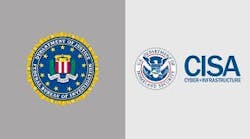WASHINGTON -- A bill boosting the Homeland Security Department's budget by 5 percent is headed for President Bush's signature after unanimous Senate approval Friday.
The $31.9 billion measure was passed by voice vote despite complaints from Democrats that it shortchanges the department, especially by cutting first responder grants for state and local governments and by keeping transit security funding frozen despite the London subway bombings in July.
But increasing the department's budget by a greater margin would have forced cuts in other Cabinet departments which already are facing squeezes in this tight budget year for most domestic agencies. The new budget year began on Saturday, but only three of 11 spending bills for agencies whose budgets Congress funds each year have cleared the Congress.
Still, the bill contains hefty 10 percent increases for two border security agencies that, when added to emergency funds passed earlier this year, would pay for 1,500 new border patrol agents. That move reflects a desire by lawmakers to place more focus on missions other than screening airline passengers.
"The department needs to be nimble and responsive, not bureaucratic and slow. It needs to target limited resources on future threats, not simply the threats posed by the attacks of September 11," said Sen. Robert C. Byrd, D-W.Va.
Byrd was the only senator to speak during the debate. In a statement, Homeland Security Appropriations Subcommittee Chairman Judd Gregg, R-N.H., said: "Were we able to fully meet every need? No, given fiscal constraints, we focused our limited resources on eliminating the most serious and detrimental vulnerabilities of our homeland security."
The bill cuts funding for first-responder grants for states and local governments by about 17 percent, $680 billion less than last year, which floor manager Gregg defends since the department has been slow to distribute grants from prior years and has $6.2 billion in reserve.
It moves toward a more risk-based formula for distributing first-responder grants, a priority for states such as New York and New Jersey. About two-thirds of grants would be allocated according to the risk of terrorist attack or natural disaster. That move fell short of recommendations by the Sept. 11 commission that all the money be risk-based.
The formula for first responder grants had pitted lawmakers from smaller states that benefited disproportionately from the old formula, against states - often represented by Democrats - with large urban areas.
Despite the London subway bombings, the bill freezes rail and transit security grants at current level of $150 million.
The bill also includes healthy budget increases of more than 10 percent to upgrade explosives screening technology at airports with a focus on procuring smaller machines. The measure also limits the number of full-time airport screeners employed by the Transportation Security Agency to 45,000.
President Bush proposed financing a $1.7 billion budget increase for the department with a $3 increase in the tax assessed each way on airline tickets. Lawmakers rejected the idea. But that meant spending cuts in other agencies and belt-tightening in Homeland Security to come up with the overall increase.
"This ill-considered (ticket tax) proposal resulted in real cuts in firefighter grants, first responder grants, Coast Guard operations, and in the number of airport screeners," Byrd said.

